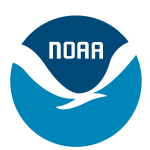- Industry: Government
- Number of terms: 30456
- Number of blossaries: 0
- Company Profile:
NOAA Coral Reef Conservation Program, National Oceanic and Atmospheric Administration, U.S. Department of Commerce
A muscle that withdraws an eversible or protrusible body part.
Industry:Natural environment
A semi-transparent membrane which can be drawn across the eye in birds, reptiles and many mammals. It functions to either moderate the effects of strong light or to sweep away dust and similar particles from the surface of the eye.
Industry:Natural environment
An animal that makes a hole or burrow in the substratum and lives in it. For example, a fidler crab.
Industry:Natural environment
An upright skeletal rod or plate at the inner margin of septa formed by upward growth of the septum.
Industry:Natural environment
Debris composed primarily of plastics, nets, lines, other fishing gear, glass, rubber, metal, wood and cloth. Sources of debris are people on beaches, storm drains, fishing boats, waste treatment sites, and industrial facilities. These materials have damaging effects on coral reefs .
Industry:Natural environment
In fishes, a sucker-like organ for clinging to various surfaces, e.g. The modified pelvic fins in clingfishes and snailfishes, and the dorsal fin in remoras (shark suckers).
Industry:Natural environment
The anteriormost, presegmental region of the body of an annelid worm, sometimes bearing eyes and antennae; the portion of the head in annelids that is situated anterior to the mouth.
Industry:Natural environment
